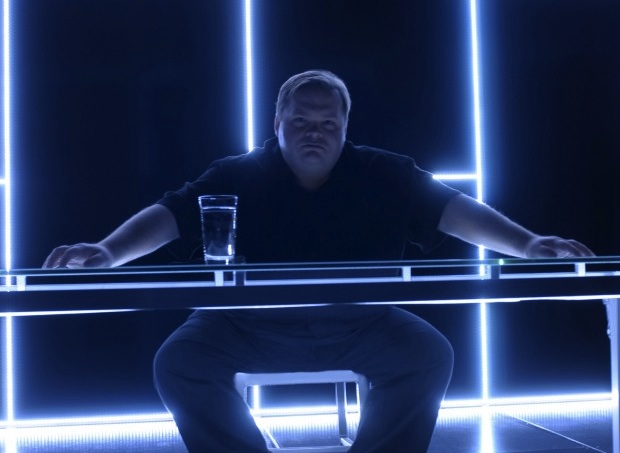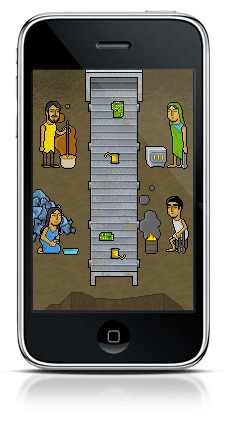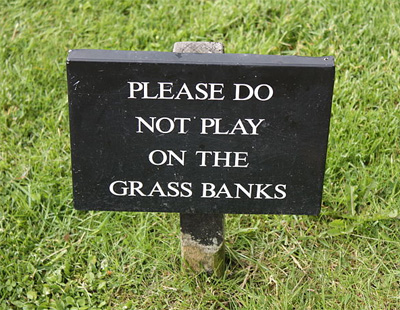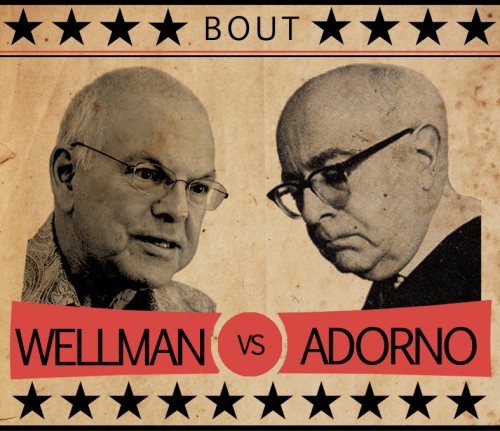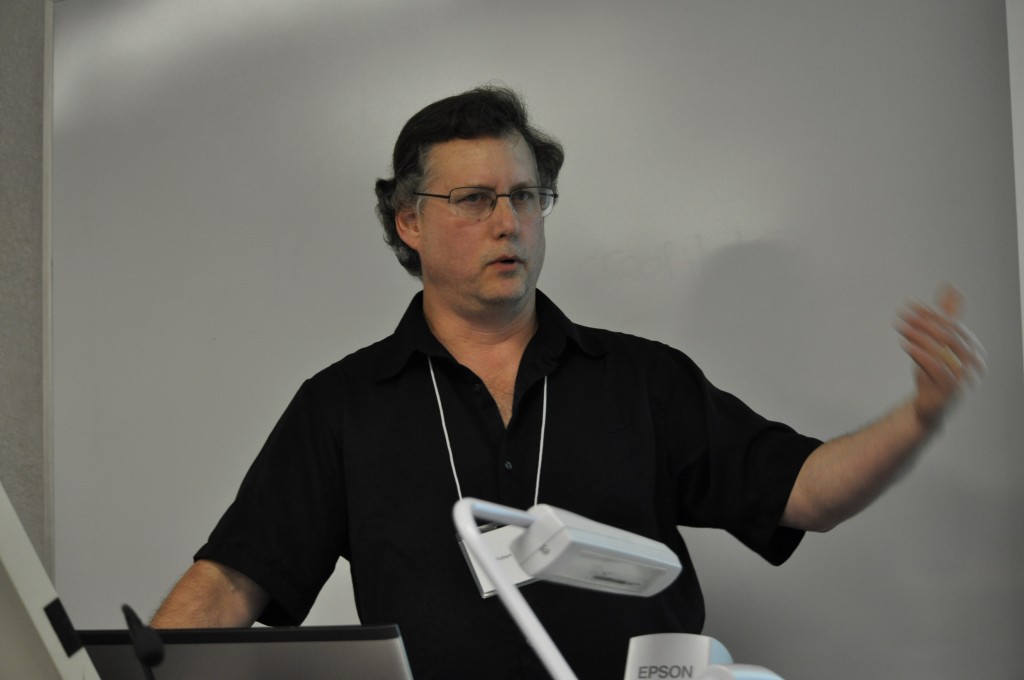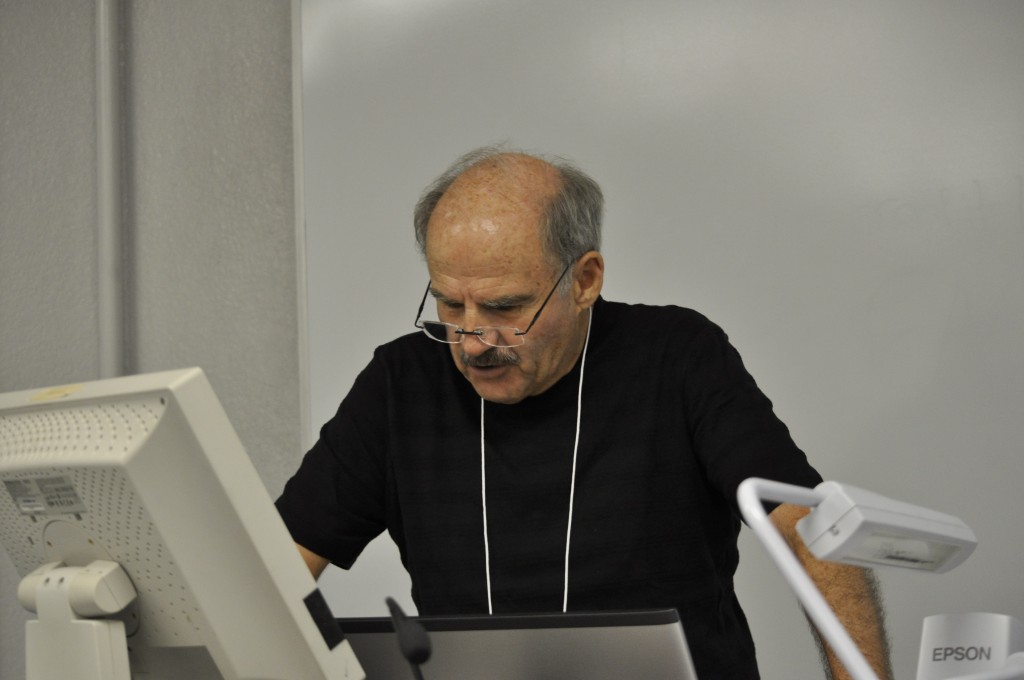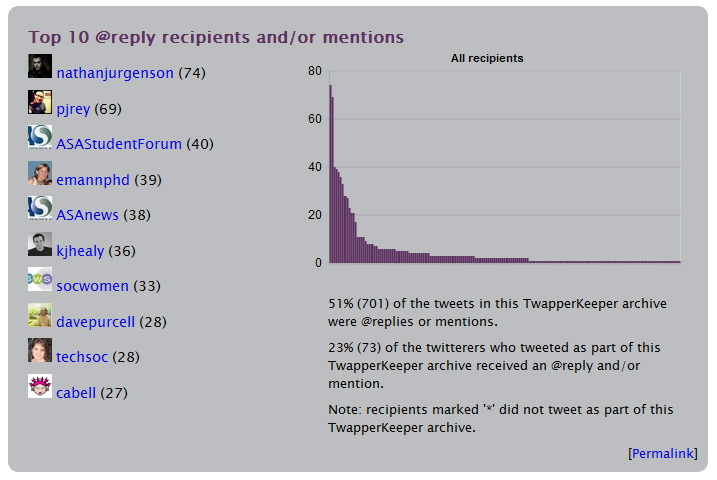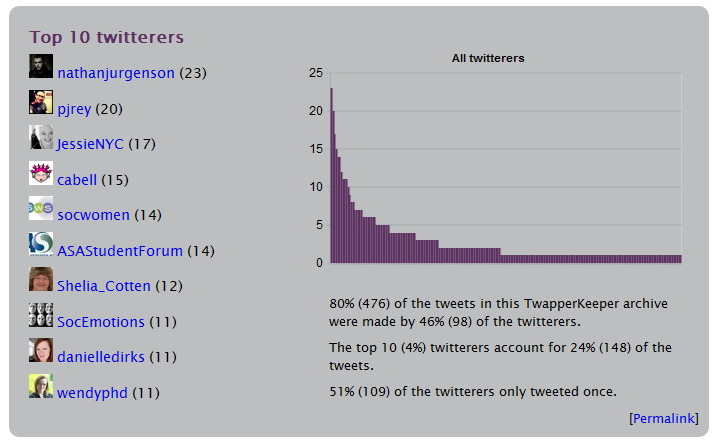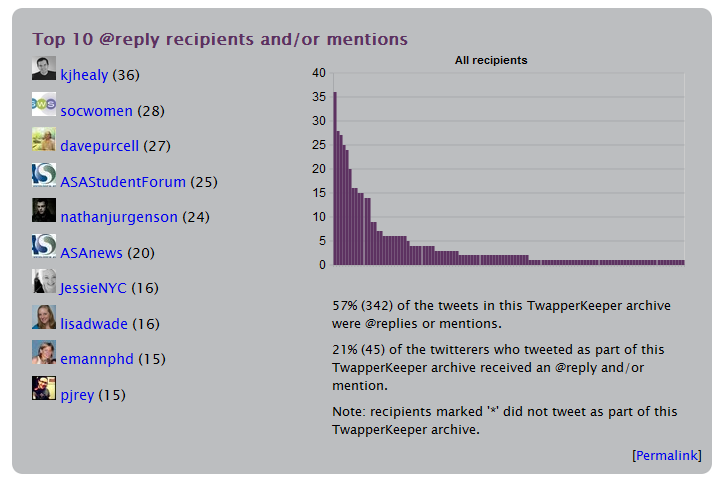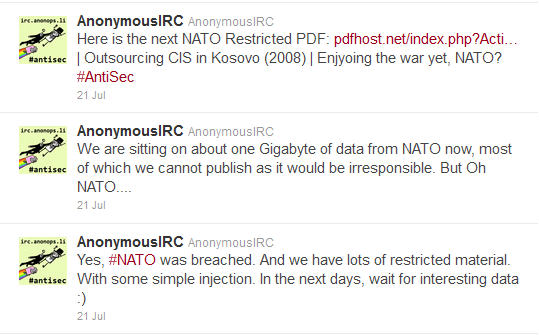On September 18th, 2011, Barry Wellman, the early and rather prescient scholar of the Internet, posed a somewhat tongue-in-cheek question to the Communication and Information Technology Section of the American Sociology Association (CITASA): “‘Critical’ – aren’t we all?” This post was precipitated by a call for papers for special issue of tripleC entitled Marx is Back: The Importance of Marxist Theory and Research for Critical Communication Studies Today (no affiliation with the author). Specifically, the call invited papers that address (my emphasis):
what it means to ask Marx’s questions in 21st century informational capitalism, how Marxian theory can be used for critically analyzing and transforming media and communication today, and what the implications of the revival of the interest in Marx are for the field of Media and Communication Studies.
Shortly after it was sent, Wellman responded to the call, saying:
Not meant personally, but the use of the word “critical” by a subset of scholars always bothers me as leading to unconscious smugness? If I’m “critical”, your lot isn’t? Who, except flacks and twerps, isn’t critical? Can we criticize the criticalists?
This sparked a debate over the utility and appropriateness of the phrase “critical theory.” Critics of the phrase raise the following objections:
- The phrase “Critical Theory” has been appropriated by one, heavily Marxist-inspired, tradition (though, it should be noted that the Frankfurt School also draws liberally from Weber, Freud, and others), which guards against its use by other theoretical perspectives.
- The use of the adjective “critical” implies an evaluation of work outside of this tradition as non-critical by comparison.
- By making such implicit evaluations, self-identified critical theorists consciously or unconsciously being smug with respect to their colleagues.
In this essay, I will argue that, despite these objections, the phrase “Critical Theory” makes a useful distinction and that the stakes in this debate are more than merely semantic.
I. Definition & Background
First, it is important to differentiate critical theory, critical sociology, and critical thinking. Critical Theory (with capital “C” & “T”) . In common parlance, a critical theory is simply one that seeks to disprove or discredit an extant theory. According to this definition, most professors are likely to engage in critical theorizing in their career. It is simply one mode of academic discourse. Sometimes, critical theory is called “negative theory” because it negates existing explanations of various phenomena, as opposed to positive theory whose purpose is new explanations.
Following this interpretation of critical theory, Michael Burawoy argued, in his 2004 presidential address to the American Sociological Association, that critical sociology is a distinct subset of sociology that challenges dominant paradigms within the discipline of sociology, saying “It is the role of critical sociology […] to examine the foundations—both the explicit and the implicit, both normative and descriptive—of the research programs of professional sociology.”
In contrast to the specificity of critical theory, “critical thinking” is a relatively vague term that generally implies thoroughness and rigor in making logical connections. While critical theorizing generally occurs in professional academic discourse, critical thinking is widely valorized across various social strata. Everybody is supposed to aspire to be a critical thinker.
“Critical Theory” (capital “C” & “T”) is distinct from the common noun phrase “critical theory.” Critical Theory generally refers to a specific intellectual movement associated with the Frankfurt school, a few loosely associated figures, and their successors. Critical Theory is not defined merely by rigor or thoughtfulness; therefore, the claim that something is not Critical Theory does not amount to a claim that something is not thoughtful or rigorous. Rather, “Critical Theory” is the name given to a distinct theoretical approach developed in reaction to a historically specific set of conditions. The agenda of this theoretical program is laid out in Theodor Horkheimer’s (1937) seminal essay “Traditional and Critical Theory,” in which he explains:
The traditional idea of theory is based on scientific activity as carried on within the division of labor at a particular stage in the latter’s development. It corresponds to the activity of the scholar which takes place alongside all the other activities of a society but in no immediately clear connection with them. In this view of theory, therefore, the real social function of science is not made manifest
Critical Theory, on the other hand,
Although it itself emerges from the social structure, its purpose is not, either in its conscious intention or in its objective significance, the better functioning of any element in the structure. On the contrary, it is suspicious of the very categories of better, useful, appropriate, productive, and valuable, as these are understood in the present order, and refuses to take them as nonscientific presuppositions about which one can do nothing. […] such thinkers interpret the economic categories of work, value, and productivity exactly as they are interpreted in the existing order, and they regard any other interpretation as pure idealism. But at the same time they consider it rank dishonesty simply to accept the interpretation; the critical acceptance of the categories which rule social life contains simultaneously their condemnation.
So, while traditional theorists attempt to refine and develop extant systems with respect to newly acquired data, Critical Theorists question the social implications of the very assumptions on which those systems are based. They can do so only by first engaging in the history of sociology—that is, by making the shift from data to theory itself as the object of inquiry. Then, secondarily, they must subject that theory to political inquiry, particularly questioning its position with respect to dominant ideologies. Critical theorists ask: “Who benefits by starting from these assumptions?” The Frankfurt School often suggested that people ignore explanations equally as plausible as their own assumptions due to mass manipulation, repression, or false consciousness. The most important difference between traditional theory and Critical Theory is that the former aims to refine and reform a system, while the latter seeks a revolutionary disposition of that system. Traditional theory is about taking the set of tools you are given and trying to make them work better, While Critical Theory greets those same tools with suspicion and asks: Who benefits from these tools, can we use different tools, or can we put them to use in different ways?
Two points:
1.) Note that Horkheimer himself does not use “critical theory” as a proper noun phrase. He was, in fact, trying to delineate two co-dependent tasks of scientific (i.e., rigorous and systematic) inquiry, while alluding to the “critical philosophy” of an important predecessor, Immanuel Kant . No doubt, the emphasis of his essay rests on critical theory which he believed was systematically inhibited by what Herbert Marcuse would latter call a “one-dimensional society” (i.e., a society where a single hegemonic ideology is so dominant that others become unthinkable or in-articulate-able). Nevertheless, it is only in retrospect, historical scholars of social theory adopt the proper noun “Critical Theory” as a short-hand for the work of Horkheimer and his cadre of academics.
2.) A wide range of other terms d’art are equally evaluative: e.g., “Modern” implies passé, Feminist implies sexist, queer implies hetero-normative, etc. It is simply a matter of accuracy to acknowledge that the tradition of Critical Theory defines itself in opposition economistic rationality, essentialism, structural functionalism, etc. However, to degrade the well-founded and rigorously-defended antagonism captured in the phrase “Critical Theory” as a mere manifestation of “smugness”—especially, given that this revolutionary sentiment was expressed contra the burgeoning fascist state in Germany—is tantamount to dismissing feminism as women just being “uppity.”
II. The Politics of Preserving a Term
Let’s face it, the leaders of the Frankfurt school weren’t necessarily the most congenial folks. Adorno was a particularly bitter curmudgeon, who was aggressive toward colleagues and dismissive toward students. Parts of Horkheimer and Adorno’s famous essay on the culture industry is aloof, culturally insensitive, and smug at many points; nevertheless, it delivered a much needed dose of reality. It’s hard to appreciate a pessimist; yet, sometimes we really need someone angry and disillusioned to point out everything we have swept under the rug. I want to argue that the academy could use a few more curmudgeons.
While Barry Wellman and others insist that our positions in academia (or, at least, in sociology) require us all to be critical, I find there is reason to believe that the opposite is the case—that, in fact, structural conditions within the present-day academy inhibits a new generation of scholars from engaging in the kind of critical work done by the Frankfurt school and political allies such as C.W. Mills or Angela Davis. Critical Theory’s goal of undermining present, unjust social relations (most notably capitalism) and the totalizing ideologies that sustain them is probably structurally incompatible with our discipline’s norms of evaluation, which elevate government grants above all else.
I’m a lowly grad student and have not yet been invited behind the velvet curtain of hiring committee meetings. However, in preparing for my own job application process, I’ve been told again and again that committees (at major research institutions) are most interested in those candidates who have secured their own NSF/NIH funding. To the extent that these anecdotes are representative of trends throughout the discipline of sociology, and academia more broadly, the incentive structure we have built implicitly favors projects that support goals intrinsic to our prevailing political and economic system (and thus making them likely to receive government funding), as opposed to those projects that serve to undermine the present social order and promote alternatives.
And, though certain established academics may find it relatively easy to obtain grants, criticizing capitalism and other structures of domination have not been particularly high on the government’s priority list lately. In fact, academics championing the issues of the marginalized and trivialized are facing increasing political scrutiny from conservative movements (e.g., the recent Coburn report, which targeted dozens of specific researchers and prescribed the wholesale elimination of social science funding).
If we all were truly critical in the historical tradition of Critical Theory, then there would be far more discussion of the structural conditions of academia and which ideologies they promote. For the Critical Theorist, it is not sufficient to be thorough in one’s investigations, one must also choose one’s work on the basis of its political potential, which is always both facilitated and constrained by the structures in which we are embedded. As it stands, I find little acknowledgement that disciplinary mechanisms of funding, evaluation, incentivization, etc. are, in fact, intrinsically political. And, to the degree that we recognize our own complicity in these structures, such concerns are generally trumped by careerism. When is the last time faculty have marched to draw attention to the precarious nature of life in the growing adjunct labor force or in solidarity with graduate students who the state fails to even recognize as workers (and, thus, as having the right to unionize)? As the operating logic of universities comes to increasingly resemble that of a business, we should find it unsurprising that departments’ decision-making processes are increasingly rationalized. Every time the (formally rational) question “How much money can this person bring to the department?” is asked, (substantively rational) questions regarding the social and political significance of an applicant’s work are supplanted.
Returning, now, to the initial question: perhaps Wellman is well-founded in observing a degree of unconscious smugness in the use of the term “critical,” but if this smugness exists, it is a sublimated manifestation of the profound frustration and disappointment many of us feel with respect to a discipline that is so rife with conflicts of interest and so embedded in the very structures of power and domination (which, ironically, we were once central in highlighting), that we have lost our collective capacity for self-reflexivity. Dialectics are at a standstill. We have been subsumed by the very structures we are supposed to be criticizing. The role of Critical Theory is to seek conditions in which revolutionary ideas will again be possible. It is not a popular message because it challenges the stakes we have claimed to prestige and other resources; but it is, nonetheless, important to those of us who believe in higher ideals of social justice.
In short, Critical Theory asks sociologists to bite the hand that feeds them. Few oblige.

